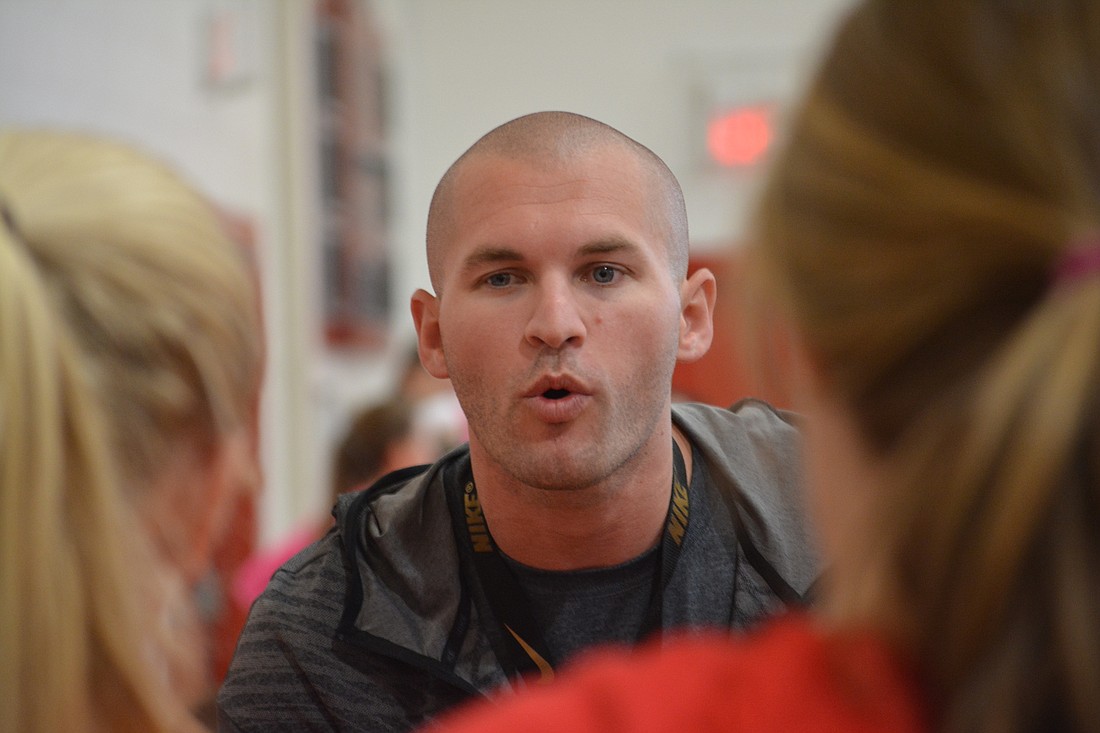- November 13, 2025
-
-
Loading

I’ve been thinking about teachers lately.
None of us would be where we are today, wherever that is, without learning from people who have already been through the wringer of life. I know I wouldn’t be writing this column if not for Beth Petralia (formerly Beth Dibler, when I knew her), my AP Language teacher at Sherwood High in Sandy Spring, Md. I didn't like writing before that class. She taught me how to love it. She taught me how to write with voice and clarity, and most importantly once let me write a multi-page paper on how sports in America are their own religion. It’s one of the few pieces of my writing more than a few weeks old that I don’t cringe reading.
“For me, it was how much coaches impacted my life,” Chad Sutton, Cardinal Mooney High’s volleyball coach, said. “They gave me discipline. They taught me to strive for greatness.”
Coaches, too, have this type of impact on people regularly. Neither teachers nor coaches will ever be rich, and they know that going into the job, but that doesn’t mean society should stop trying to make their compensation more fair. The amount of hours they work, the time spent away from their own families to help us better ourselves, is out of balance to their supplemental pay.
Sarasota County coaches have it better than some. Their supplements come from a percentage of their salary. Football coaches get the highest percentage (12%) while boys and girls basketball coaches get 10%, and the list goes down from there. Coaches also get 10% of their supplement for each week they advance past the district playoffs.
It’s better than Manatee County (which gives a flat supplement to each coach, meaning a first-year coach makes the same as a 30-year veteran, and they don’t get postseason pay), but it’ll never be enough. People continue to coach, though. There are quality coaches at each school in the area, so I got curious. As coaches say to players all the time, "know your why." Why do it if you know going in that the pay may not equal the effort or expertise.
I decided to ask a few.
“For me, it was how much coaches impacted my life,” Chad Sutton, Cardinal Mooney High’s volleyball coach, said. “They gave me discipline. They taught me to strive for greatness.”
Sutton said the job is frustrating at times, being away from your family and having to deal with parents who don’t quite understand the dynamics of the team you’re coaching, or what you’re trying to accomplish. There are moments, though, when things click for a player that make the hardships worth it. Sutton had one of those this season in senior Lauren Medenis, who was a starting libero before Sutton moved her to center before her junior year. She then came off the bench for the Cougars. Medenis didn’t complain, he said. She dedicated herself to her position and this season earned a starting position once again, becoming a vital cog in the Cougars’ program.
So impressed was Sutton by Medenis, he’s naming the program’s coaching award after her.
“That’s what you want every kid to be,” Sutton said. “It gives me hope that there are still team players out there. It made my year.”
Sutton is by his own admission a crier on Senior Night. It’s because while in the heat of the season, coaches don’t have time to reflect on little victories. On celebratory nights like those, all the emotions rise to the surface.
It’s similar for Sarasota High baseball coach Clyde Metcalf, who has been a staple of the community for generations. For him, coaching is about impact, and that means in both directions. Every year brings new personalities and challenges, and you learn from all of them, he said.
Players aren’t just players to Metcalf, they are friends. He stays in contact with tons of them. After former Sailor Scooter Gennett hit four home runs in a game last June for the Cincinnati Reds, becoming just the 17th player in MLB history to do so, Metcalf had a text conversation with him, as he often does.
Most importantly, Metcalf said, he coaches because it’s what he loves to do. He knew he would never get rich taking the career path he did, but he never cared about the money. He cared about making a difference, teaching his players not just about baseball but about the real world, and how to act within it.
“You also have to have an understanding wife and family,” Metcalf said. “The time away from family and friends is significant. The team becomes your second family. You have to enjoy it.”
Writing this, and realizing why coaches do what they do, made me think about the thanks I’ve given to people in my past, especially Mrs. Petralia. I’ve been meaning to write her a letter of thanks for many years, detailing what I've been doing and how much she helped me, but have always put it off. Maybe this column will suffice.
Thank you to Mrs. Petralia and all the teachers and coaches who work so hard to help us realize our potential. It’s not enough just to say thanks, but nothing ever is.